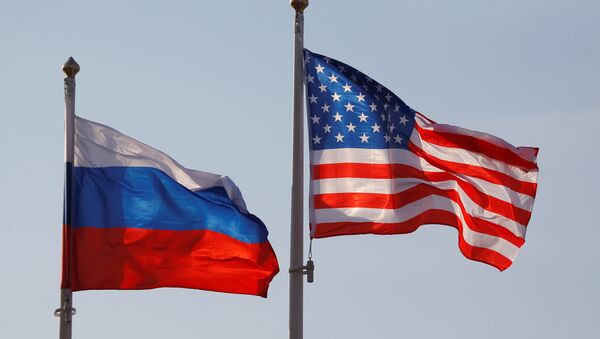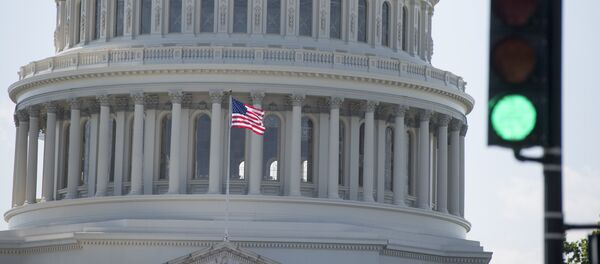The US Senate approved earlier on Wednesday by an overwhelming majority a measure that would expand sanctions on Russia and limit the president’s ability to lift restrictions.
"We need to wait for the final decision by the Congress, to see the reaction of US President Donald Trump, but if the law is passed we will certainly not leave this move unanswered," said Vladimir Dzhabarov, the first deputy chairman of the Russian parliament upper house's International Affairs Committee.
The sanctions bill passed through the Senate by a vote of 97-2 but still must go through the House of Representatives before it reaches Trump's desk.
Senators Rand Paul and Mike Lee, both Republicans, were the only 'no' votes. The rest of the chamber fell in line to pass a bipartisan measure that lumps together sanctions against Iran with Russia, a concession Democrats fought for. In exchange, Democratic aides said they would lower pressure against Senate Republicans on their healthcare bill that will not be available to the public until it receives a Congressional Budget Office scoring.
The Trump administration is unlikely to push back on anti-Russia sanctions, according to Treasury Secretary Steve Mnuchin. "Let me assure you there is no intention for us to remove the Russian sanctions," Mnuchin emphasized.
President Trump campaigned on improving bilateral relations with Moscow, saying at multiple points that befriending Russian President Vladimir Putin should be viewed as a positive development. In the early months of the Trump administration, the first-time public office holder has followed through on fringe campaign vows such as exiting the Paris Climate Accord, imposing a travel ban on Muslims, and hiring more border patrol agents. Whether Trump makes good on his promise to cooperate with Moscow on shared areas of interest, such as terrorism, remains to be seen.
Kremlin spokesman Dmitry Peskov said Wednesday that the Kremlin seeks to avoid a "pique of sanctions" in response to the US Senate's newly proposed sanctions against Russia but called for patience until the measures are codified.
Meanwhile, Washington's top diplomat Rex Tillerson warned Congress this week that punitive measures against Moscow could give the Kremlin reason to back off from including the US in discussing a political solution in Syria.



